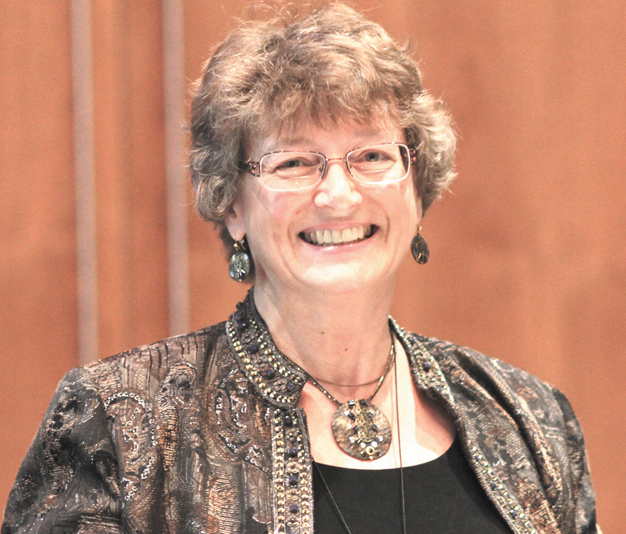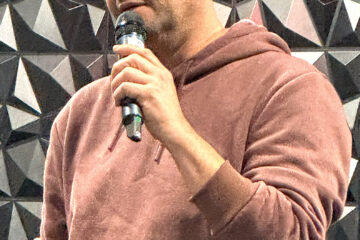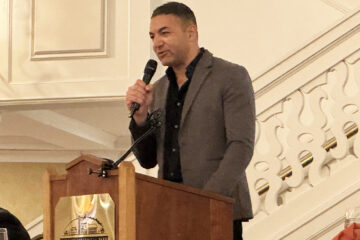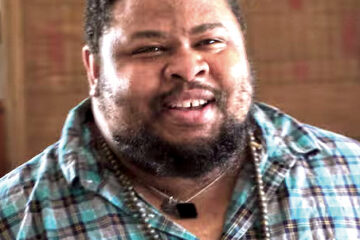Messages of Eden

Considering Creation Series
Jewish Family Education with Candace R. Kwiatek, The Dayton Jewish Observer
His dinner finished, my grandson was ready to play. Despite a reminder to first wash his greasy hands, he grabbed his high chair like a wheeled baby walker and began to push. My sharp, “Jacob! Hands!” so startled him, he banged his head. After a quick snuggle, I insisted on an apology: “I’m sorry. I should have washed my hands first.” Hands clean, he went off to play. And for the next five minutes, I heard him murmuring to his toys, with dramatic intonation, “I should have washed my hands first!”
It’s never too early — even as a toddler — to learn about choices and consequences.
“The Lord God planted a garden in Eden…with a tree of life and a tree of knowledge of good and evil…God placed man in the garden, to till and tend it…
“And the Lord God commanded the man, saying, “Of every tree of the garden, you are free to eat, but as for the tree of knowledge of good and evil, you must not eat of it, for as soon as you eat of it you shall die…
“The two of them were naked, the man and his wife, yet they felt no shame.
“Now the serpent was the shrewdest of all the wild beasts that the Lord God had made. He said to the woman, ‘Did God really say: You shall not eat of any tree of the garden?’…And the serpent said to the woman, ‘You are not going to die, but God knows that as soon as you eat of it, your eyes will be opened and you will be like divine beings who know good and evil.’ When the woman saw that the tree was good for eating and a delight to the eyes, and that the tree was desirable as a source of wisdom, she took of the fruit and ate. She also gave some to her husband, and he ate…
“Then the Lord God said, ‘In extreme pain shall you bear children…By the sweat of your brow shall you get bread to eat, until you return to the ground — for from it you were taken.’
“…So the Lord God banished him from the garden of Eden to till the soil from which he was taken (Gen. 2:8-3:23, abbreviated).”
Having created humans in the likeness of animals and in the image of the Divine, God placed Adam and Eve in Eden. There they were guided by animal instinct to care for the garden and, as Maimonides explains, by a transcendent rational intellect to master their world by discriminating between the true and the false.
Life was a paradise for body and mind, serene and uncomplicated.
“Yet there was still something unfinished — and ultimately, God knew it,” writes educator Anita Silvert, “the realization of the (Divine) potential of human choice.”
To that end, God placed in the Garden the tree of knowing good and evil and promptly forbade eating from it on pain of death.
This raises some challenging questions. Did God not want humans to understand good and evil? Could human choice be fully realized through an obedience test?

Was this a setup, where human nature essentially guaranteed the fruit would be eaten? What was the point of threatening death for disobedience?
It was not a setup at all, explains biblical scholar and commentator Franz Delitzch. The Divine intention was that obedience (not eating the fruit) would eventually lead to a recognition that everything opposed to God’s will is an evil to be avoided. Resisting evil is a deliberate choice for good. This godlike understanding of good and evil, together with self-mastery over temptation, would ultimately lead to true personal liberty.
However, this outcome hinged on being guided solely by animal instinct and a rational intellect — avoid the threat of death and evaluate the choices: God expects me to obey, true or false?
But then the snake appears. This scene begins with Adam and Eve described as arummim, naked or “without a veil.” In the very next line, the snake is described as arum, translated as shrewd. What is the connection? Arum can also mean “revealer, as in one who is able to lift up the veil, or who makes known.” So what does the snake reveal to Eve? The non-rational, emotional, ego-centered intellect, which entices Eve and Adam to disobey God’s command.
As a logical consequence of their disobedience, humans would not be like gods — eternal beings living in paradise, authorities over good and evil — as the serpent implied.
Expelled from the Garden, humans would now toil in the earth, experience pain and suffering, and ultimately die. Perhaps in the afterlife or at the end of times, humans would return to Eden.
The messages of Eden? The architect of the universe, God, is also the only architect of objective morality. Each of you, created in the image of God, has free will, a transcendent rational intellect, an emotional intellect, and responsibility for your choices and their consequences. The serpent is neither the source nor the symbol of what is bad in your life. He just reveals it. The source is you and your worldview and how you act in the world.
These are not popular messages today, but they are foundational to Judaism. It’s not a universal belief that everyone has free will and choice. Rather, life is controlled by circumstances. It’s not a universal belief that decision-making should be accomplished by using one’s rational and emotional intellect, with the rational having the final say: “Is this true or false? Is this moral or immoral?”
Rather, good intentions and emotions should rule decision-making, because caring outweighs results.
It’s not a universal belief that each of us is responsible for the consequences of our actions and the work that fills our lives. Rather, responsibility and blame belong elsewhere — even on fate.
The living laboratory of four concentration camps, however, led survivor Viktor Frankl to reaffirm the truth of the Garden’s messages: “Man has both potentialities within himself (to be like swine or saints); which one is actualized depends on decisions but not on conditions.”
More than 3,300 years ago, a group of former slaves left Egypt to establish their own free nation built upon these ideas from Genesis, codified into law and culture at Sinai.
Despite exile, persecution, and near-genocide, their descendants retained these messages from Eden, ideas so powerful they shaped Western Civilization, built America, and rebirthed an ancient nation, each of which has experienced success beyond any dreams.
The egocentric modern world, however, seems to reject not only the Bible but its verifiable precepts, like those of Eden. One has to wonder if today’s antisemitism and anti-Zionism aren’t, at least in part, because Jews continue to personify these timeless hallowed principles.
Literature to share
Osnat and Her Dove: The True Story of the World’s First Female Rabbi by Sigal Samuel. This illustrated children’s book recounts the life story of Osnat, a 17th-century rabbi’s daughter who loved the books in her father’s library. She begged to learn and practiced reading to a tame, white dove in her neighborhood. Credited with many miracles, she became a respected teacher in her father’s yeshiva and eventually became its leader. Brilliant artwork with reds, blues, and aquas captures the ambiance of the Near East, adding to the uniqueness of the story. A delight for elementary ages, this is one of my all-time favorites for story and illustrations.
Little Pieces of Me by Alison Hammer. When a DNA testing site contacts Paige about a new leaf on her family tree, her already precarious life shatters. Why? It’s a paternal match, but her father has been dead for over two years. This novel captures the emotions and challenges of unearthing long-buried family secrets and wrestles with the notion of identity and how it emerges. Fast-paced, interesting characters, and well-written, this is an engaging summer or weekend read.
To read the complete July 2021 Dayton Jewish Observer, click here.





